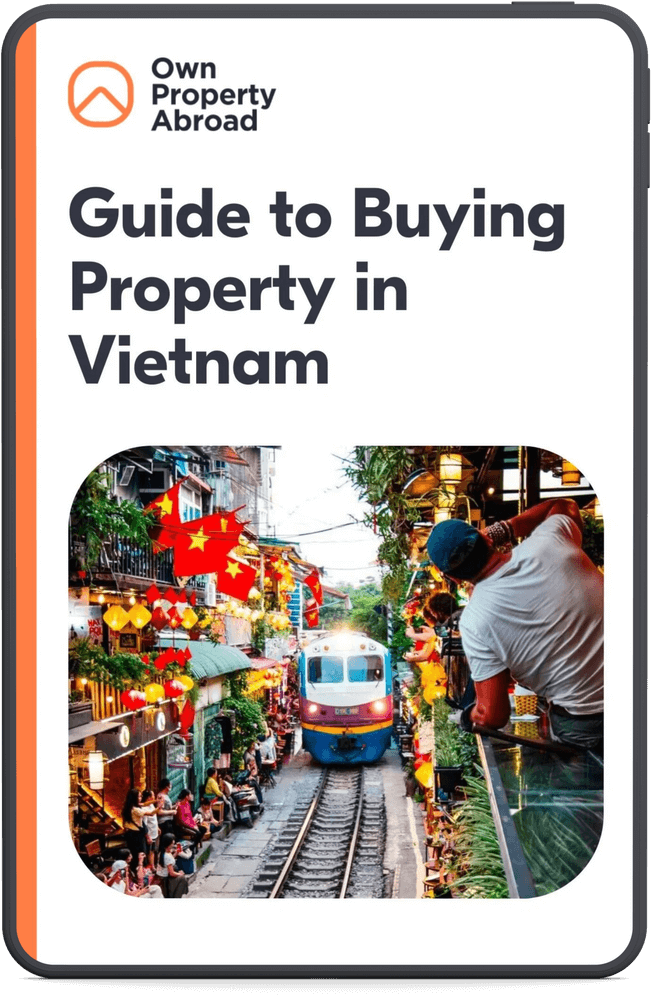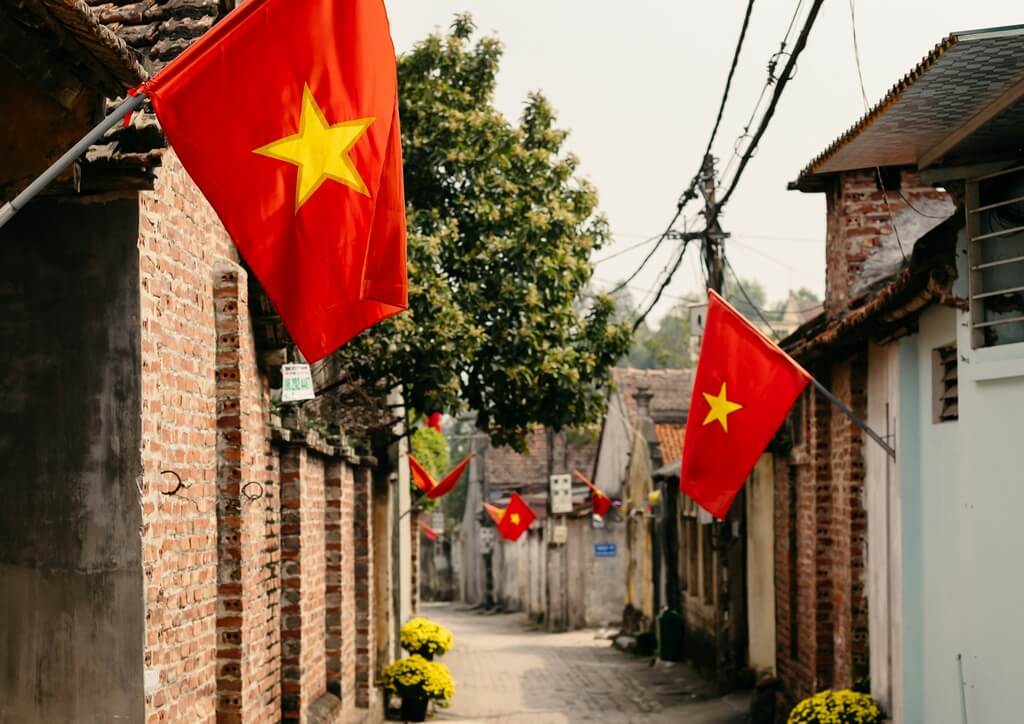Is it safe to buy property in Vietnam?
Investing in property in Vietnam presents a mix of opportunities and challenges that foreign buyers should carefully navigate. The burgeoning local and international interest has increased the residential property market. However, with this growth in real estate in Vietnam has come an increase in deceptive practices, such as fake property listings and other real estate scams in Vietnam. In metropolitan areas like Ho Chi Minh City, there have been instances where individuals have been misled by fraudulent agents who lack the authority to sell the properties they advertise. This underscores the critical importance of conducting transactions exclusively through well-established and reputable agents.
Moreover, Vietnam’s unique land ownership laws significantly differentiate it from many Western countries and can complicate transactions. For example, a foreign investor faced substantial financial losses after building condos, only to learn that local laws restricted foreign sales in that area. Additionally, legal structures and enforcement mechanisms concerning real estate scams in Vietnam are still developing. This can lead to tricky situations where foreign investors face losses, as seen when a building faces demolition due to the developer’s failure to secure the appropriate permits. These factors highlight the importance of thorough due diligence and an in-depth understanding of local regulations and practices to avoid real estate scams in Vietnam.
Valuable insights and practical advice, distilled from years of expertise and real-world experience.


What are the risks of buying real estate in Vietnam?
Investing in Vietnamese real estate can seem attractive, but buyers, particularly foreigners, must know the potential risks. Here are seven risks of buying real estate in Vietnam:
- Legal conditions not met by developers: Before a property can be legally sold, developers must meet specific requirements, such as project completion. To avoid real estate scams in Vietnam, buyers must ensure these conditions are met.
- The complexity of obtaining the “pink book”: The pink book certifies property ownership but can be challenging to get for foreigners, making property ownership a complex process for them in Vietnam.
- Unclear property functions: Real estate scams in Vietnam can involve instances where the intended use of a property is not clearly outlined, or developers might provide misleading information that can confuse or deceive buyers.
- Issues with assigning sales and purchase contracts: If the pink book is delayed, foreign buyers might face problems when assigning their sales and purchase contracts to someone else.
- Financial obligations: Purchasing property comes with various financial obligations, including fees and taxes, which buyers must understand fully to avoid unexpected liabilities and real estate scams in Vietnam.
- Transaction charges: When purchasing property, buyers are subject to additional costs like legal fees and taxes, which can significantly impact the overall cost of the investment.
- Fluctuating foreign currency exchange: Foreign buyers are affected by exchange rate fluctuations when converting their money into Vietnamese dong, potentially incurring losses due to rate variations.

10 common real estate scams in Vietnam
Understanding and identifying real estate scams is crucial for anyone looking to invest or purchase property in Vietnam, as this helps to avoid potential financial losses and legal issues. Below are the ten common real estate scams in Vietnam.
1. Fraudulent buying and selling of real estate
One concerning scam is the fraudulent sale of real estate, which takes advantage of the general public’s lack of awareness about land registration. Tricksters manage to sell illegal plots by making written sales contracts that falsely assert the land is legally registered and licensed by the relevant authorities. This deception has led to considerable losses for uninformed buyers, revealing a critical need for diligence in understanding land registration and legal sales processes.
2. Misappropriation of the deposit
A notably cunning scam has been the emergence of fictitious ghost projects devised to lure investors with the promise of low-cost, prime-location land. Companies like Alibaba Real Estate and Hoang Kim Land have been implicated in such schemes, drawing in deposits for projects on land set aside for public works without official project approval. This real estate scam in Vietnam is executed with staged land viewings and fake buyer interactions to create an illusion of high demand, causing many to invest under false pretenses.
3. Selling one property to multiple buyers
A distressingly common swindle involves selling the same property to numerous buyers. Scammers list properties at attractively low prices, complete with convincing documents and images, only to entice buyers into making deposits or partial payments on informal agreements. This real estate scam in Vietnam sees fraudsters escape with significant amounts of money from multiple victims, underscoring the importance of formal transaction processes in real estate dealings.
4. Deals involving fake documentation
Engaging in property transactions with counterfeit documents targets both unsuspecting buyers and sellers. For the seller, fraudsters are posing as buyers who request property deeds for verification purposes only to create forged duplicates. They skillfully exchange these fakes in subsequent meetings, often leaving the legitimate owner at a significant loss. Similarly, on the buyer’s end, scammers simultaneously use falsified documents to sell properties to multiple parties, emphasizing the critical need for thorough document verification in real estate transactions.
Valuable insights and practical advice, distilled from years of expertise and real-world experience.


5. Manipulative price inflation scams
Some scammers play both buyer and seller roles to artificially inflate property prices. By pretending to be wealthy buyers willing to pay generously for particular properties, they trick actual buyers into purchasing at inflated prices with the false expectation of selling at a profit. Victims pay way above the market value, often entangling them in financial and legal predicaments.
6. Scams involving distraint properties
Another real estate scam in Vietnam involves selling properties under distraint due to the owner serving a legal sentence. Sellers offer these properties at appealing prices for quick liquidation, only to misappropriate the funds instead of settling legal judgments as required. This scam highlights the need for buyers to conduct comprehensive checks on the property and the seller’s legal standing.
7. Misleading purchase of agricultural land for residential conversion
Promises of converting agricultural land into residential zones have led many to purchase such lands at high prices based on assurances of notarization and conversion within months. After a significant financial commitment, buyers are left with unconvertible land and no sign of the sellers, exposing the risks of trusting verbal commitments in land conversion deals.
8. Selling properties in projects without bank guarantee certificates
The absence of a bank guarantee in future property sales is a critical oversight many buyers make, unaware of its protections under the Law on Real Estate Business. This document ensures that the buyer’s financial interests are safeguarded should the project fail to materialize as committed. The ignorance of such safeguards has led to significant losses for buyers misled into investing in non-guaranteed projects.
9. Impersonation of reputable investors
The Vietnam real estate market has seen cases where scammers impersonate reputable investors to sell land, using counterfeit project details and attractive price points to deceive buyers. This tactic misleads buyers and tarnishes the reputation of genuine investors and projects, underscoring the need for verification in property investment decisions.
How to safely buy property in Vietnam
When considering purchasing a property in Vietnam, it’s essential to take precautions to ensure a secure and satisfying transaction. Here are eleven tips on how to safely buy property in Vietnam:
- Visit the property personally: Always visit and meet the owner in person. Pictures or descriptions cannot replace this firsthand experience. Ensure you’re granted full access; otherwise, consider it a real estate scam in Vietnam.
- Verify owner legitimacy: Request proof of ownership from the seller. If dealing with a manager or sub-tenant, they must also provide appropriate documentation.
- Evaluate the rental price: Ask detailed questions about extraordinarily low prices and walk away if the answers are not convincing.
- Prefer bank transactions: Avoid paying in cash. Opt for bank transfers that can be traced and documented. If cash payments are unavoidable, insist on obtaining receipts.
- Avoid overseas payments: Never agree to send money to a foreign bank account for deposits or rent. This is often a sign of a real estate scam in Vietnam.
- Demand a comprehensive lease agreement: Ensure all agreements with the owner are formalized in a signed lease. Every page should be signed, particularly by the owner and any involved realtor.
- Request detailed receipts: Obtain a detailed invoice before making any payments, especially at checkout. This helps prevent future financial discrepancies.
- Choose a reputable real estate agent: If managing the property search personally is challenging, engage a credible real estate agent. Verify their reputation through reviews, real customer feedback, and personal recommendations to avoid real estate scams in Vietnam.
- Stay informed and patient: Be aware of rental scams and cautiously approach deals that seem unusually advantageous. Scammers frequently benefit from rash decisions.
- Perform basic due diligence: Conduct a brief internet search for the property address, the owner’s name, the building management company’s name, and contact details. Check for potential disputes or legal issues associated with the property to avoid real estate scams in Vietnam.
- Look for independent reviews: Seek opinions and experiences from reliable sources, such as friends, trustworthy brokers, or direct reviews on platforms like Google Maps.
Expert guidance to safely buy property in Vietnam
Buying property in Vietnam can be a rewarding investment, but it’s essential to avoid scams and ensure full legal compliance. Our experienced team is ready to guide you through every step, from thorough due diligence and understanding legal requirements to finding the right property and closing the deal safely. Whether you’re a first-time buyer or a seasoned investor, we offer personalized support to make your property purchase in Vietnam smooth and secure. Have questions or need tailored advice? Email us at [email protected]. We’re here to help you invest with confidence.
Valuable insights and practical advice, distilled from years of expertise and real-world experience.


Frequently Asked Questions (FAQs)
Are real estate scams common in Vietnam?
Real estate scams are common in Vietnam, especially in major cities like Ho Chi Minh City, due to the growing popularity of the residential property market.
Is Vietnam a good place to invest in property?
Vietnam is a good place to invest in property, with a gross rental yield of 3.23% in the city center and 3.67% outside the city center.
What are the pitfalls for foreigners buying a condo in Vietnam?
The pitfall for foreigners buying a condo in Vietnam is the imposed cap on foreign ownership, limiting them to owning no more than 30% of units in a condominium building or 250 houses in a ward-level area.



